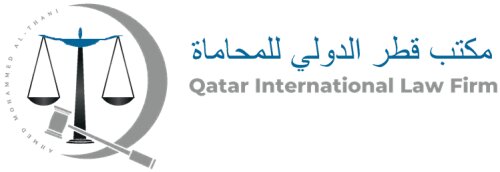Best Faith-Based Law Lawyers in Qatar
Share your needs with us, get contacted by law firms.
Free. Takes 2 min.
Or refine your search by selecting a city:
List of the best lawyers in Qatar
About Faith-Based Law in Qatar
Faith-Based Law in Qatar is deeply rooted in Islamic jurisprudence, known as Sharia law, which governs many aspects of daily life, personal conduct, and legal matters. Sharia law influences family law, inheritance, business contracts, criminal matters, and other areas. It is derived primarily from the Quran and Hadith, with interpretations made by Islamic scholars. In Qatar, the legal system is a blend of Sharia law and civil law, creating a unique legal landscape that requires specific knowledge and expertise to navigate effectively.
Why You May Need a Lawyer
There are several situations where individuals may require legal assistance related to Faith-Based Law in Qatar:
- Family Matters: Issues related to marriage, divorce, child custody, and inheritance often require legal guidance to ensure they align with Sharia principles.
- Business Disputes: Commercial contracts and business disputes may need to be resolved under principles of Islamic finance and Sharia law.
- Criminal Cases: Understanding the application of Sharia in criminal law is essential, as punishments and procedures may differ from civil laws.
- Personal Status Issues: Cases involving personal status, such as conversion to Islam or interfaith marriages, may require legal oversight.
Local Laws Overview
Understanding local laws in Qatar is crucial when dealing with Faith-Based Law. Here are some key aspects:
- Sharia Courts: These courts handle family law, inheritance, and personal status matters, and their decisions are based on Islamic law.
- Family Law: This includes regulations on marriage, divorce, and child custody. Polygamy is permitted, but subject to conditions under Sharia.
- Inheritance Laws: Estate distribution is governed by Islamic principles, which dictate specific shares for family members.
- Islamic Finance: Financial transactions are required to comply with Islamic principles, prohibiting interest and certain speculative practices.
- Criminal Law: Some criminal offenses are judged per Sharia, which may include severe penalties not commonly found in other legal systems.
Frequently Asked Questions
What is the role of Sharia in Qatar's legal system?
Sharia law is a fundamental part of Qatar's legal system, especially influencing family law, personal status cases, and banking regulations.
Can non-Muslims be affected by Sharia law in Qatar?
Yes, especially in cases related to family law and inheritance where Sharia principles might be applied regardless of religious affiliation.
Is it necessary to convert to Islam to marry a Qatari citizen?
For a non-Muslim woman to marry a Muslim man in Qatar, conversion is generally required, but legal advice should be sought for current regulations and procedures.
How are inheritance disputes resolved in Qatar?
Inheritance disputes are usually resolved in Sharia courts, where distribution is based on Islamic principles assigning fixed shares to heirs.
Are there any exceptions to Sharia law in Qatari courts?
Some civil and commercial matters are resolved under Qatari law rather than strictly Sharia, but this depends on the specific case and court jurisdiction.
Can expatriates seek legal recourse in Sharia courts for family matters?
Yes, expatriates can bring family law cases to Sharia courts, but outcomes will be based on Islamic principles, which can differ significantly from laws in their home countries.
Is mediation available for family law disputes in Qatar?
Mediation is encouraged in family disputes, and legal professionals can help navigate this process within the bounds of Sharia law.
What should I do if I'm charged with a crime judged under Sharia?
Seek immediate legal assistance from a lawyer experienced in Sharia and Qatari criminal law for guidance and representation.
Are there special considerations for business contracts in Qatar under Sharia?
Yes, business contracts must comply with Sharia principles, which prohibit usury and certain speculative practices. Legal advice can ensure compliance.
Can I challenge a legal decision made by a Sharia court?
Yes, legal decisions can be appealed, but understanding the process requires a lawyer familiar with both Sharia and Qatari judicial procedures.
Additional Resources
For those seeking further assistance or information, consider the following resources:
- Qatar Ministry of Justice: Provides information and guidance on legal matters, including those involving Sharia law.
- Sharia Court of Qatar: For direct access to court rulings and procedures related to personal and family law.
- Legal Advisory Offices: Many local law firms specialize in faith-based law and can offer specialized advice.
- Islamic Financial Institutions: Guidance on compliance with Islamic financial regulations and practices.
Next Steps
If you are in need of legal assistance related to Faith-Based Law in Qatar, consider the following steps:
- Identify Your Legal Needs: Determine whether your situation involves family law, criminal matters, business disputes, or another area governed by Sharia.
- Seek Professional Counsel: Contact a lawyer who specializes in Faith-Based Law in Qatar to gain insights and legal representation.
- Prepare Documentation: Gather all relevant documents and information pertinent to your case before consulting with a legal professional.
- Understand the Legal Process: With your lawyer, outline the steps involved in your legal matter, including possible mediation, court appearances, and appeals.
- Stay Informed: Keep abreast of any changes in local legislation that may impact your legal rights and responsibilities under Sharia law.
Lawzana helps you find the best lawyers and law firms in Qatar through a curated and pre-screened list of qualified legal professionals. Our platform offers rankings and detailed profiles of attorneys and law firms, allowing you to compare based on practice areas, including Faith-Based Law, experience, and client feedback.
Each profile includes a description of the firm's areas of practice, client reviews, team members and partners, year of establishment, spoken languages, office locations, contact information, social media presence, and any published articles or resources. Most firms on our platform speak English and are experienced in both local and international legal matters.
Get a quote from top-rated law firms in Qatar — quickly, securely, and without unnecessary hassle.
Disclaimer:
The information provided on this page is for general informational purposes only and does not constitute legal advice. While we strive to ensure the accuracy and relevance of the content, legal information may change over time, and interpretations of the law can vary. You should always consult with a qualified legal professional for advice specific to your situation.
We disclaim all liability for actions taken or not taken based on the content of this page. If you believe any information is incorrect or outdated, please contact us, and we will review and update it where appropriate.
Browse faith-based law law firms by city in Qatar
Refine your search by selecting a city.
















